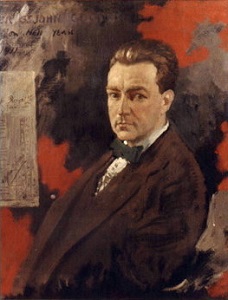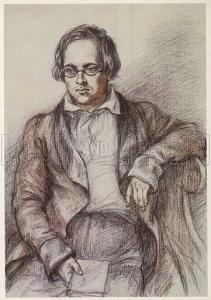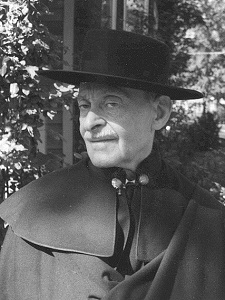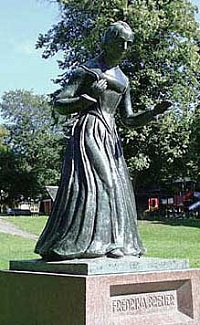De Amerikaanse schrijfster Nicola Kraus werd geboren op 17 augustus 1974 in New York. Zie ook alle tags voor Nicola Kraus op dit blog en ook mijn blog van 17 augustus 2010.
Uit: Over you Samen met Emma McLaughlin)
“Bridget drops her head to Max’s shoulder.
“Fifteen?”
Bridget nods.
“Okay, now let’s start with a shower. You’ll feel better.”
But beyond the shower is dressed, beyond dressed is breakfast, beyond breakfast is leaving and that’s when Taylor won’t be waiting downstairs for his morning kiss and Poptart before he heads south to his school and she heads north to hers. Bridget buries her face in her raised knees, the idea of taking a single step unbearable. “I won’t.”
Max pats her sweaty back. “But I will.” She stands and claps her hands. “Okay! You have homeroom at eight-twenty and we have a ton of ground to cover. Being late today of all days is OUT of the question—in fact, for the next month I don’t care if you get wombat flu—you will be at school every day looking awesome because that will get back to him and that will be the first chink in his ego. Okay, time to wash off the last twelve hours! Here we go! The rest of your spectacular life awaits!”
Bridget stares at Max, salty tear-crusts in the corner of her eyes and mouth. “Sorry. So you’re Shannon’s friend? I’m just not really following how you—”
“We’ll get to that. Take the coffee in with you. Right in under the water. Here.” She pulls Bridget to her feet, hands her the lid and holds the edge of the floral comforter as Bridget walks right out from under it. It trails off her shoulders like a queen’s cape as she shuffles to the bathroom.
While Bridget showers Max does an informed sweep of the room, removing the sweatshirt, stuffed duck and dangly earrings Zach’s electronic espionage revealed were gifts from Taylor. She then returns the hacked laptop to Bridget’s desk. Lastly Max whips out her sterling tape measure, another flea market score, and sizes up the windows.”

Nicola Kraus (New York, 17 augustus 1974)
Emma McLaughlin en Nicola Kraus (rechts)
De Ierse dichter en schrijver Oliver St. John Gogarty werd geboren op 17 augustus 1878 in Dublin. Hij werkte ook als arts, piloot. Zie ook alle tags voor Oliver St. John Gogarty op dit blog en ook mijn blog van 17 augustus 2009 en ook mijn blog van 17 augustus 2010.
Song of Medical Dick and Medical Davy
The first was Medical Dick
The second was Medical Davy
The first had a Bloody Big Prick
The second had Buckets of Gravy
To show– to show– to show what medicals are.
Then out spoke Medical Dick
To his comrade Medical Davy
‘I’d swap my Bloody Big Prick
For you with your buckets of Gravy’
To show etc.
‘Steady Medical Dick’
Said Sturdy Medical Davy
‘There’s very little value in a prick
When you haven’t got the passage of the gravy.’
To show etc.
‘Every bullock were a bull
But for the little matter of a ballocks
If your prick can keep the women full
You’ll find they never grumble at its small looks.’
To show etc.

Oliver St. John Gogarty (17 augustus 1878 – 22 september 1957)
Portret door William Orpen, 1911
De Franse dichter en schrijver Robert Sabatier werd geboren op 17 augustus 1923 in Parijs. Zie ook alle tags voor Robert Sabatier op dit blog en ook mijn blog van 17 augustus 2010.
Uit: Le roman d’Olivier
« Depuis le petit matin, il pleuvait, mais ce n’était pas une eau triste : elle préparait la voie du soleil. On percevait la complicité des éléments, les jeux subtils de la brume et de la clarté. Le dos bombé des pavés se réjouissait, et aussi les herbes, les mousses qui les cernaient. La pierre vivante souriait, le gris s’argentait, apprivoisait de nouvelles nuances, vert, bleu, or. L’eau dans les ruisseaux chantonnait doucement.
Une rue ordinaire sur le flanc de la colline montmartroise, la rue Labat se terminant au milieu de la rue Bachelet formant la barre horizontale d’un T. Sur la hauteur, gravies cinq marches de pierre, d’un espace en demi-lune s’élevait un raidillon semé de demeures, cabanes plus que logis, territoire délimité par une palissade plissée et tordue comme un soufflet d’accordéon. En bordure, la boucherie kascher de M. Aaron faisait face à l’échoppe du rempailleur de chaises, M. Léopold. La rue Bachelet prise à main gauche, passé le drapeau tricolore en métal du lavoir, on aboutissait à la rue Nicolet où se trouvait un pavillon habité naguère par le poète Paul Verlaine et sa belle-famille. Toujours en haut de la rue Labat, en tournant à droite, on atteignait la rue Caulaincourt et ses immeubles bourgeois, tout de suite après l’interminable escalier Becquerel bordé de hauts édifices.
Au pied de cet escalier séparé en deux parties par une rampe de fer propice aux glissades, sur le côté gauche, derrière la porte d’une grille entrouverte se trouvaient des poubelles de métal, une lessiveuse retraitée, des cageots écrasés d’où s’échappait un remugle de chat et de chou.
Lorsque le soleil apparut, une vapeur s’éleva du goudron luisant. Une vieille femme, les épaules protégées par un fichu noir à franges nouées, descendait l’escalier, sans hâte, une main serrée sur la rampe humide.»

Robert Sabatier (17 augustus 1923 – 28 juni 2012)
De Russische dichter Anton Delvig werd geboren op 17 augustus 1798 in Moskou. Zie ook alle tags voor Anton Delvig op dit blog en ook mijn blog van 17 augustus 2010.
Ah, You Night…
Ah, you night, you little night!
Ah, you night, you stormy night!
Why from early evening tide
Even to the midnight late
Twinkle not your little stars,
Shineth not your full-orbed moon?
You are veiled with darkling clouds!
‘T is with you, I think, O night,
Even as with me, young man,
Villain grief has called on us!
When the dire one takes abode
Somewhere deep within the heart,
You forget the lasses fair,
Dances and obeisances;
You forget from evening tide
Even to the midnight late,
Singing songs, to take delight
In the chorus and the dance.
No, you sob, you weep aloud,
And, a sad and lonely lad,
You upon your coarse straw bed
Vertaald door Leo Wiener

Anton Delvig (17 augustus 1798 – 26 januari 1831)
Portret door Aleksander Ivanov, z.j.
De Poolse dichter en schrijver Józef Wittlin werd geborern in Podolien op 17 augustus 1896 in het toenmalige Oostenrijk-Hongarije. Zie ook alle tags voor Józef Wittlin op dit blog en ook mijn blog van 17 augustus 2010.
Hymn of Hatred (Fragment)
As she comes upon a pasture
with a girl who tends her cattle
and plays a song
and sings a bit
on a so-called “field of glory,”
only ten years old–
she whispers words into her ear: and the girl flings off her wreath
and drives the cows into the rye.
And the landlord sees this sight,
flogs her with a willow switch
that she’d weave no more
any garland for her sweetheart, not from pansy, nor from cornflower,
nor from wild
rose…
And if you have a friend, a friend with faithful eyes,
(he’d follow you to death)–
hatred’s just crept up beside him,
showing him her mug–
something grabs him from the side,
then he wants your reputation, all your money and your wife,
and sets your house on fire–
A house
Built with heavy labor.
And when in school a teacher
recites to children truths from books
and puts pious substance
with noble words into the hearts
of different fathers’, mothers’ children–,
hatred through the schoolroom window
from the little alley sprays in
doubting dust:
it makes the children’s heads turn round

Józef Wittlin (17 augustus 1896 – 28 februari 1976)
De Zweedse schrijfster Fredrika Bremer werd geboren op 17 augustus 1801 in Tuorla bij Piikkiö. Zie ook alle tags voor Frederika Bremer op dit blog en ook mijn blog van 17 augustus 2010.
Uit: Hertha or the Story of a Soul (Vertaald door Mary Howitt)
«They cannot even think or choose for themselves a profession or a way of life. Ah, I would so gladly have lived upon bread and water, and have been superlatively happy, if I might but have studied as young men study at universities, and by my own efforts have made my own way. The arts, the sciences—oh, how happy are men who are able to study them; to penetrate the mysteries of the beautiful and the sublime, and then go forth into the world and communicate to others the wisdom they learned, the good they have found. How glorious to live and labor day by day, for that which makes the world better, more beautiful, lighter. How happy should one feel, how good, how mild; how different that life must be to what it is, where there seems to be no other question in the world but, ‘What shall we eat and drink, and what shall we put on?’ and where all life’s solicitude seems to resolve itself into this. Oh, Alma, are we not born into this world for something else? How wretched!” and as if overwhelmed by the thought, Hertha buried her face in her hands. Presently she became calmer, and continued, looking steadily upwards:
“How dissimilar are objects in the world, as well as in nature as among mankind. The Creator has given to each and all their different impulse and destination, which they cannot violate without becoming unnatural, or perishing. This is allowed to be an unquestioned law as regards the children of nature. People do not require from the oak that it shall be like a birch, nor from the lily that it shall resemble the creeping cistus. With men it is the same; they are allowed each one to grow according to his bent and his nature, and to beome that which the Creator has called them to be; but women, precisely they who should improve every power to the utmost, they must become unnatural, thoughtless, submissive tools of that lot to which men have destined them.»

Fredrika Bremer (17 augustus 1801 – 31 december 1865)
Standbeeld in Stockholm
